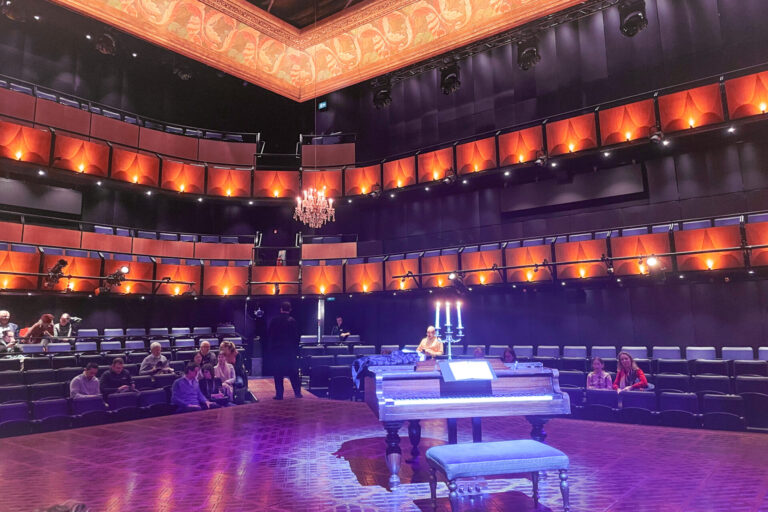As the second show ever to grace our newest West End theatre, Josie Rourke’s reimagination of Shakespeare’s ‘As You Like it’ is an excellent choice. Not only is this a beautiful production but with deaf actresses Rose Ayling-Ellis playing Celia and Gabrielle Leon playing Audrey, it was essential to incorporate British sign language into the performance. We need to talk about how incredible this is to see.
We must appreciate what an enormous task it must have been to translate the Shakespearian prose into BSL. Sign language is a very literal language, and to capture the poetic words and metaphors of the text would have been no easy feat and the company worked with creative consultant Nadeem Islam to bring the story to life through BSL.
Ayling-Ellis’ outstanding performance has so much charisma, bringing Celia to life in a very energetic way that is incredibly endearing. Unlike when you’re verbally speaking words, with sign language you can’t hear the tone in which something is being said. Therefore, this is expressed through body language and facial expressions, adding an extra element to her performance. She does this so well that you could often understand what was being expressed without reading the captions.
The chemistry she has with Leah Harvey (Rosalind) shines in every scene and the pair always converse in sign language with one another which makes their bond seem even closer. The only time Celia speaks verbally is during an outburst of devastating emotion when Rosalind is banished by her own father.
As portions of the show were signed, there are four screens placed on each side of this rectangular auditorium captioning the entire show. Captioning makes a show more accessible for everyone and even with the absence of sign language I’d really love to see this more often. I’ve seen captioned performances of some shows before but of course these are few and far between and anyone who actually needs the captions it can be difficult to arrange to go to the one specific captioned performance. There was nothing distracting about these screens and, for someone like me who turns captions on when watching Netflix, it actually made the show more enjoyable.
Another thing which made this production stand out was the use of song. It is clear straight from the centre-piece piano on the stage that music is going to aid the storytelling. More often than not, the songs in Shakespeare plays are brushed over but in this version they are given purpose. Pianist and composer, Michael Bruce, enhances scenes and setting the tone, whilst also offering humorous moments when the actors break the fourth wall to interact with him.

